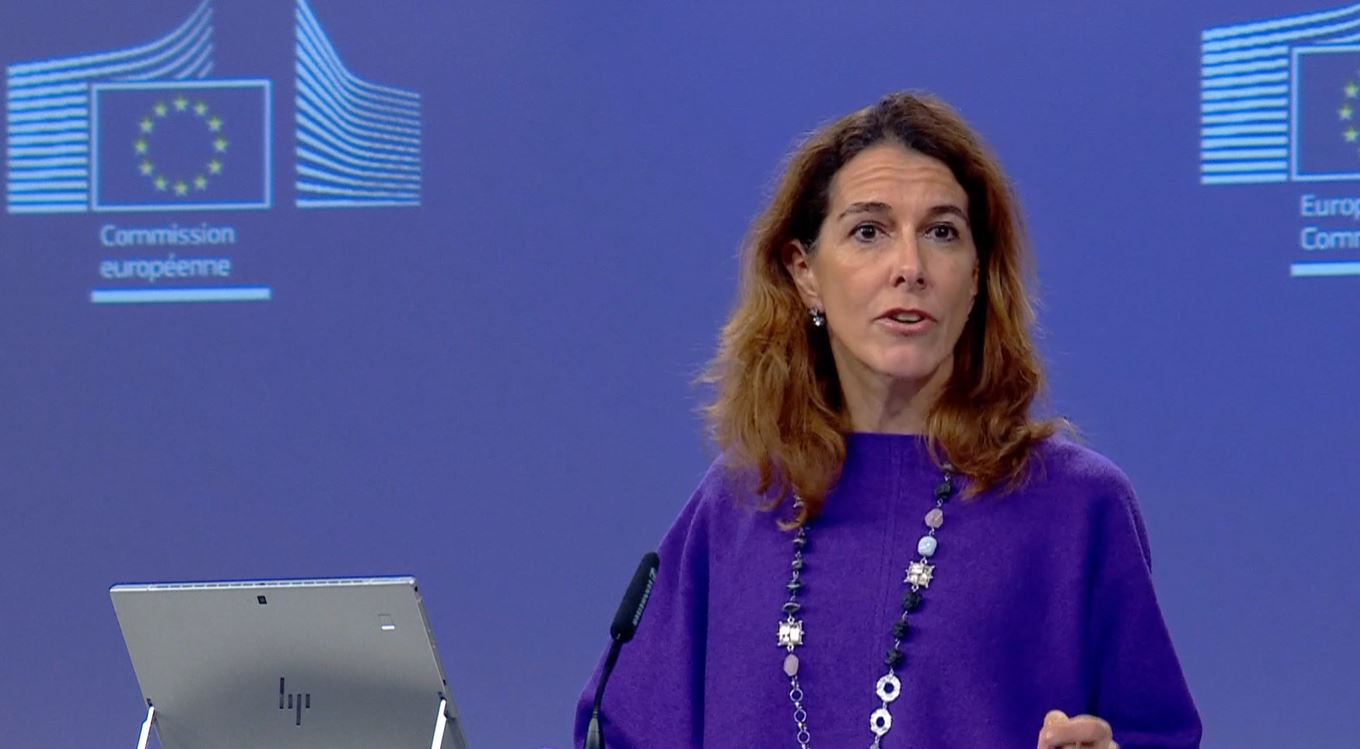EU's Strategy For Eliminating Russian Gas: Spot Market In Focus

Table of Contents
H2: The Urgent Need for Diversification Away from Russian Gas
The EU's reliance on Russian gas has created significant geopolitical and economic vulnerabilities. The invasion of Ukraine and subsequent sanctions dramatically exposed these weaknesses.
H3: Geopolitical Instability and Energy Security Concerns
The war in Ukraine underscored the inherent risks of depending on a single, unreliable supplier for a crucial resource like natural gas. Russia's actions demonstrated the potential for energy blackmail, impacting not only energy prices but also the broader European economy.
- Increased energy prices: The reduction in Russian gas supply led to a significant spike in European gas prices, impacting businesses and consumers alike.
- Supply chain disruptions: The energy crisis rippled through various sectors, causing disruptions across the supply chain.
- Potential for energy blackmail: Russia's use of gas as a political weapon highlighted the urgent need for the EU to break free from this dependence.
H3: The Role of the EU's REPowerEU Plan
The EU's REPowerEU plan is a crucial initiative aimed at accelerating the bloc's energy transition and securing its energy independence. A core component of this plan is drastically reducing reliance on Russian fossil fuels.
- Increased investments in renewable energy: REPowerEU aims to significantly boost investments in renewable energy sources like solar, wind, and hydropower.
- Energy efficiency measures: Improving energy efficiency across all sectors is a key element of the plan, reducing overall gas demand.
- LNG terminal development: Expanding the capacity to import liquefied natural gas (LNG) from diverse global sources is a priority.
- Diversification of gas supply sources: The plan seeks to secure gas supplies from a wider range of reliable partners, including Norway, Algeria, and Azerbaijan.
H2: The Spot Market's Growing Importance
The spot market for natural gas is becoming increasingly vital to the EU's strategy for eliminating Russian gas. Its inherent flexibility offers advantages over long-term contracts.
H3: Increased Flexibility and Price Discovery
Unlike long-term contracts, the spot market offers significantly more flexibility in sourcing gas. It allows the EU to quickly adapt to fluctuations in supply and demand.
- Real-time price adjustments: Prices reflect the current market dynamics, enabling quicker responses to supply disruptions.
- Ability to source gas from multiple suppliers: The spot market provides access to a diverse range of gas suppliers, reducing dependence on any single nation.
- Reduced dependence on bilateral agreements: The spot market operates through open trading platforms, fostering competition and transparency.
H3: Accessing LNG and Diversified Pipeline Gas Sources
The spot market is crucial for accessing LNG from global suppliers, supplementing pipeline gas from diverse sources.
- Increased LNG terminal capacity: The EU is actively expanding its LNG import infrastructure to capitalize on the global LNG market.
- Development of new pipeline infrastructure: New pipelines are being developed to enhance connectivity with alternative gas suppliers.
- Expansion of interconnections between EU member states: Improved interconnection between member states allows for efficient gas distribution across the EU.
H3: Challenges of the Spot Market
While offering significant advantages, the spot market also presents certain challenges.
- Price volatility: Fluctuations in the spot market can lead to unpredictable energy costs for consumers and businesses.
- Competition for limited LNG supply: Global demand for LNG can lead to intense competition and potentially higher prices.
- Need for effective market regulation: Robust market regulation is crucial to mitigate price volatility and prevent market manipulation.
- Strategic gas storage: Adequate gas storage capacity is essential to buffer against supply shocks and price spikes.
- Hedging strategies: Effective hedging strategies are vital for managing price risk and ensuring energy affordability.
H2: Supporting Policies and Infrastructure Investments
The EU is implementing supportive policies and making significant investments to facilitate the transition to a spot market-centric gas supply system.
H3: EU-wide Gas Storage Regulations
Mandatory gas storage targets are being implemented to ensure sufficient gas reserves, especially during peak demand periods.
- Minimum storage levels: EU regulations set minimum storage levels to ensure sufficient gas reserves for winter months.
- Coordination of gas storage across member states: This ensures efficient distribution and reduces regional imbalances.
- Investment incentives for storage infrastructure: Incentives are being offered to encourage investment in gas storage capacity.
H3: Investments in LNG Terminals and Pipeline Interconnections
Significant investments are being made in upgrading existing infrastructure and building new facilities.
- Funding for new LNG terminals: The EU is providing funding to support the development of new LNG import terminals.
- Upgrades to existing pipelines: Existing pipelines are being upgraded to enhance capacity and efficiency.
- Development of new cross-border interconnections: New cross-border pipeline connections are crucial for efficient gas distribution within the EU.
3. Conclusion:
The EU's strategy to eliminate reliance on Russian gas is heavily reliant on the growing importance of the spot market. By embracing the spot market's flexibility, investing in diverse gas sources and crucial infrastructure, and enacting effective policies, the EU can significantly improve its energy security and accelerate the transition towards a more sustainable energy system. Successfully addressing the challenges of price volatility and securing sufficient supply is paramount to achieving the EU's ambitious goal of completely phasing out Russian gas imports and achieving genuine energy independence. Further exploration of spot market dynamics and supportive policies is vital to the success of the EU's strategy for eliminating Russian gas.

Featured Posts
-
 Trumps Shift In Tone Towards The Fed Fuels Usd Appreciation Against Major Currencies
Apr 24, 2025
Trumps Shift In Tone Towards The Fed Fuels Usd Appreciation Against Major Currencies
Apr 24, 2025 -
 Chinese Buyout Firm Mulls Sale Of Chip Tester Utac
Apr 24, 2025
Chinese Buyout Firm Mulls Sale Of Chip Tester Utac
Apr 24, 2025 -
 John Travoltas Miami Steak Dinner A Pulp Fiction Tribute Video
Apr 24, 2025
John Travoltas Miami Steak Dinner A Pulp Fiction Tribute Video
Apr 24, 2025 -
 Whataburger Video Propels Hisd Mariachi To Uil State Competition
Apr 24, 2025
Whataburger Video Propels Hisd Mariachi To Uil State Competition
Apr 24, 2025 -
 Goldsteins Resurrected Cat Analyzing Ted Lassos Unexpected Return
Apr 24, 2025
Goldsteins Resurrected Cat Analyzing Ted Lassos Unexpected Return
Apr 24, 2025
